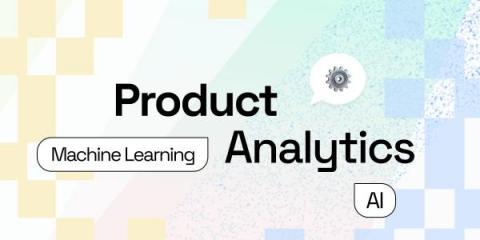Systems | Development | Analytics | API | Testing
Latest News
CDO & CDAO Guide to Enterprise Generative AI
We all know that organizations face a huge challenge in extracting valuable insights from vast amounts of data. Chief Data Officers (CDOs) and Chief Data Analytics Officers (CDAOs) play a key role in this process, as they are responsible for managing and leveraging organizational data to drive sustainable and responsible growth. One technology that has revolutionized the way they unlock value from business data is generative artificial intelligence (AI).
Embracing the Future: How Generative AI is Transforming and Supercharging the Landscape of Knowledge Work
The world of knowledge work is undergoing a profound transformation as generative AI emerges as a powerful force driving innovation, efficiency, and productivity. With its ability to analyze vast amounts of data, generate insights, and streamline complex tasks, generative AI is reshaping the way professionals work and unlocking new possibilities. It also raises fears of replacing knowledge workers with Generative AI.
Unveiling the Key Security Concerns of CISOs Regarding Generative AI within the Enterprise
In today’s rapidly evolving technological landscape, generative artificial intelligence (AI) has emerged as a powerful tool for various industries, and it seems like enterprises are fast to adopt it. Generative AI refers to the use of machine learning algorithms to generate original and creative content such as images, text, or music.
How to use custom holidays for time-series forecasting in BigQuery ML
With custom holiday modeling features, BigQuery users can build more powerful and accurate time-series forecasting models using BigQuery ML.
How Generative AI Will Impact the Pharmaceutical Industry
By Noam Harel In the ever-changing landscape of the pharmaceutical industry, the integration of generative artificial intelligence (AI) holds immense promise and potential alongside risk, patient and consumer safety and tight regulation. Generative AI refers to the ability of machines to autonomously create new and unique content, ideas, or solutions.
Mind the Gap: Bridging the Business Unit AI Innovation Gap
By Noam Harel In the fast-paced and ever-evolving business landscape, innovation has become the lifeblood of success. Yet, many organizations fail to harness the full potential of innovation due to a significant gap between their business units. This gap, like a hidden chasm, prevents the sharing of best practices, stifling growth and hindering progress.
The Role of AI and Machine Learning in Product Analytics
From descriptive to predictive: Your first machine learning model
An overview of common low-hanging fruits to help you get started with machine learning.
Key Takeaways on Generative AI for CEOs: Revolutionizing Business with Speed and Trust
Generative AI stands out from other technological breakthroughs due to its remarkable velocity and unprecedented speed. In a matter of mere months since its initial emergence in the limelight, this cutting-edge innovation has already achieved scalability, aiming to attain substantial return on investment. However, it is imperative to effectively harness this formidable technology, ensuring that it can deploy on a large scale and yield outcomes that garner trust from your business stakeholders.











